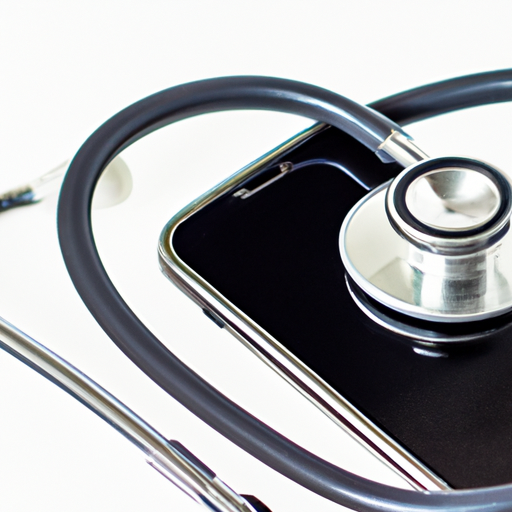In the digital age, social media has become an integral part of our daily lives, impacting various industries, including healthcare. However, the use of social media in the healthcare sector comes with its own unique set of challenges and compliance requirements. In order to navigate this complex landscape and avoid potential legal issues, it is crucial for healthcare providers to understand the importance of social media claims compliance. This article explores the key considerations and best practices for healthcare professionals, shedding light on how they can effectively utilize social media while adhering to industry regulations. Whether you are a healthcare provider or a business owner in the healthcare industry, this article aims to provide you with valuable insights and actionable advice to ensure your organization remains compliant in the realm of social media.

Understanding Social Media Claims Compliance for Healthcare
Social media has become a powerful tool for businesses and industries across the board, and the healthcare sector is no exception. While social media offers numerous opportunities for healthcare organizations to connect with patients and promote their services, it also comes with certain challenges and risks. One such challenge is ensuring social media claims compliance.
What is Social Media Claims Compliance?
Social media claims compliance refers to the adherence of healthcare organizations to legal and regulatory requirements when making claims or promoting their services on social media platforms. This includes ensuring that the information shared on social media is accurate, ethical, and compliant with industry-specific guidelines. Compliance is essential to maintain the trust and safety of patients, avoid legal repercussions, and protect the reputation of healthcare organizations.
Why is Social Media Claims Compliance Important for Healthcare?
Compliance with social media claims is of utmost importance in the healthcare industry due to several reasons. Firstly, healthcare organizations have a responsibility to provide accurate and reliable information to their patients and the general public. Inaccurate claims or misleading information can lead to confusion, distrust, and even harm to patients.
Secondly, compliance with social media claims regulations is necessary to protect patient privacy and confidentiality. Healthcare organizations must ensure that patient information is not disclosed without proper consent and that sensitive details are not shared on public platforms.
Furthermore, compliance is crucial to avoid legal consequences and reputation damage. Non-compliance with regulations can result in lawsuits, fines, disciplinary actions, and a tarnished brand image. By adhering to social media claims compliance, healthcare organizations can mitigate these risks and build a strong foundation for trust and credibility.
Legal Considerations for Social Media Claims Compliance in Healthcare
When it comes to social media claims compliance in healthcare, there are various legal considerations that organizations must keep in mind. These considerations include:
-
Advertising and Marketing Regulations: Healthcare organizations should be aware of the legal requirements and restrictions related to advertising and marketing their services on social media. This includes avoiding false or misleading claims, disclosing relevant information, and complying with guidelines set by regulatory bodies.
-
HIPAA Regulations: The Health Insurance Portability and Accountability Act (HIPAA) sets strict standards for patient privacy and the security of protected health information. Healthcare organizations must ensure that any information shared on social media platforms complies with HIPAA regulations to protect patient confidentiality.
-
Intellectual Property Rights: Social media claims compliance also involves respecting intellectual property rights. Healthcare organizations must obtain proper permission or licenses before using copyrighted material, trademarks, or other intellectual property on their social media platforms.
-
Jurisdictional Differences: Healthcare organizations should be mindful of the legal and regulatory differences across jurisdictions when it comes to social media claims compliance. What is allowed in one jurisdiction may not be permissible in another, so organizations must navigate these differences accordingly.
By understanding these legal considerations and taking proactive measures, healthcare organizations can promote compliance with social media claims regulations and mitigate potential legal risks.
Best Practices for Social Media Claims Compliance in Healthcare
To ensure social media claims compliance in the healthcare industry, organizations should follow a set of best practices. These practices aim to establish guidelines, processes, and protocols to uphold legal and ethical standards. Some key best practices include:
Developing a Social Media Policy
Creating a comprehensive social media policy is crucial for healthcare organizations. This policy should outline the dos and don’ts of social media usage, including guidelines for claims, patient privacy, intellectual property, and employee conduct. The policy should be regularly reviewed and updated to reflect ongoing legal changes and industry trends.
Training and Education
Healthcare organizations should invest in proper training and education programs for their employees to ensure they understand the importance of social media claims compliance. This should include training on legal requirements, patient privacy, ethical marketing, and proper handling of negative publicity.
Monitoring and Auditing
Regular monitoring and auditing of social media accounts are essential to identify and rectify any compliance issues. Healthcare organizations should establish processes and tools to monitor the content being shared, review comments and reviews, and address any potential compliance violations promptly.
Maintaining Patient Confidentiality
To protect patient privacy and comply with HIPAA regulations, healthcare organizations should ensure that social media posts or communications do not disclose any personal health information without proper authorization. Implementing strict security measures and access controls is also crucial to safeguard patient confidentiality.
Monitoring and Responding to Online Reviews
Healthcare organizations should establish procedures for monitoring and responding to online reviews on social media platforms. Timely and professional responses can demonstrate a commitment to patient satisfaction, while also addressing any potential compliance concerns that may arise in reviews.
Avoiding Advertising Risks on Social Media
Healthcare organizations should be cautious when using social media platforms for advertising. They should ensure that claims made in advertisements are accurate, supported by evidence, and comply with advertising regulations. Clear disclosures and disclaimers should also be provided where necessary.
By adopting these best practices, healthcare organizations can establish a proactive and compliant approach to social media claims, thereby safeguarding their reputation and ensuring the well-being of their patients.
Social Media Claims Compliance Challenges in Healthcare
While social media claims compliance is essential, it does come with several challenges for healthcare organizations. These challenges include:
Navigating HIPAA Regulations
HIPAA regulations can be complex, and ensuring compliance while engaging on social media can be challenging. Healthcare organizations must navigate these regulations carefully to strike a balance between engaging with patients and protecting their privacy.
Ensuring Accurate and Ethical Marketing
Healthcare organizations need to ensure that their marketing efforts on social media are accurate, evidence-based, and ethical. Claims about treatments, services, or outcomes should be supported by valid evidence to avoid misleading patients.
Managing Employee Social Media Use
Employee social media use can pose risks for healthcare organizations. Organizations need to establish guidelines and educate employees about responsible social media usage to prevent unintentional compliance violations or breaches of patient confidentiality.
Handling Negative Publicity and Crisis Management
Social media can amplify negative publicity and create crises for healthcare organizations. Managing negative reviews, addressing complaints, and handling crisis situations on social media require careful planning, quick responses, and a commitment to transparency.
Balancing Privacy and Transparency
Healthcare organizations must strike a delicate balance between patient privacy and transparency. While transparency is important in building trust, organizations must also protect confidential patient information and comply with privacy regulations.
Addressing Legal and Regulatory Differences Across Jurisdictions
Healthcare organizations with a national or international presence may encounter challenges due to legal and regulatory differences across jurisdictions. Compliance with social media claims can vary, and organizations must navigate these differences to ensure consistent compliance.
By proactively addressing these challenges and implementing appropriate strategies, healthcare organizations can overcome the hurdles of social media claims compliance and enhance their overall regulatory compliance efforts.

Steps for Achieving Social Media Claims Compliance in Healthcare
To achieve social media claims compliance in the healthcare industry, organizations should follow a systematic approach. The following steps can guide healthcare organizations towards compliance:
Conduct a Compliance Assessment
Begin by conducting a comprehensive compliance assessment to identify any gaps or areas of non-compliance. This assessment should cover social media policies, adherence to regulations, employee practices, and other relevant areas.
Create and Implement a Social Media Policy
Develop a robust social media policy that aligns with legal requirements and industry best practices. Ensure that the policy covers all aspects of claims compliance, patient privacy, employee conduct, and crisis management.
Provide Ongoing Training and Education
Invest in regular training and education programs to keep employees updated on social media claims compliance. This training should address legal requirements, industry guidelines, and changes in regulations to ensure consistent compliance.
Establish Monitoring and Auditing Protocols
Implement processes and tools to monitor social media accounts, review content, and detect any compliance violations. Regular audits should be conducted to ensure ongoing compliance and prompt resolution of any issues.
Deploy Secure and Compliant Messaging
When engaging with patients or sharing information on social media platforms, use secure and compliant messaging systems to protect patient privacy. Implement encryption, access controls, and other security measures to prevent unauthorized access or disclosure.
Establish Guidelines for Employee Social Media Use
Clearly communicate expectations and guidelines regarding employee social media use. This includes educating employees about responsible usage, proper disclosure of affiliation, and appropriate conduct to avoid compliance violations or reputational damage.
Develop a Crisis Communication Plan
Prepare a comprehensive crisis communication plan that outlines steps to be taken in the event of negative publicity or crisis situations on social media. This plan should include designated spokespersons, procedures for timely responses, and strategies for restoring trust and reputation.
Stay Updated on Legal and Regulatory Changes
Maintain an ongoing awareness of legal and regulatory changes related to social media claims compliance. Regularly review and update policies, training programs, and protocols to adapt to evolving requirements and guidelines.
By following these steps, healthcare organizations can establish a robust framework for social media claims compliance and maintain a proactive approach towards regulatory adherence.

FAQs about Social Media Claims Compliance for Healthcare
As healthcare organizations navigate social media claims compliance, it is common to have questions. Here are some frequently asked questions about social media claims compliance in the healthcare industry:
What are some common mistakes to avoid when using social media for healthcare marketing?
Common mistakes to avoid when using social media for healthcare marketing include making false or misleading claims, failing to disclose relevant information, violating patient privacy, using copyrighted material without permission, and ignoring advertising regulations.
Can I use patient testimonials on social media?
Patient testimonials can be used on social media platforms, but healthcare organizations must obtain proper patient consent and comply with HIPAA regulations. Personal information should be protected, and compliance with advertising regulations should be maintained.
What steps can I take to protect patient privacy on social media?
To protect patient privacy on social media, ensure that no personally identifiable information is shared without proper authorization. Implement strict security measures, use encrypted messaging systems, and provide employee training on privacy practices.
How can I address negative online reviews on social media platforms?
Addressing negative online reviews requires a timely and professional approach. Respond promptly to negative reviews, acknowledge the concerns, offer solutions or apologies, and provide contact information for further resolution. Avoid disclosing any patient-specific details in public responses.
What are the consequences of non-compliance with social media claims regulations in healthcare?
Non-compliance with social media claims regulations can lead to various consequences, including legal actions, fines, disciplinary actions by regulatory bodies, damage to the organization’s reputation, and loss of patient trust. Compliance is crucial to avoid these adverse outcomes and ensure a safe and reliable healthcare environment.
By addressing these common questions, healthcare organizations can provide clarity and transparency regarding social media claims compliance to their stakeholders.
